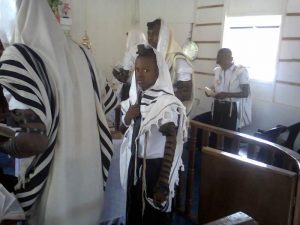 The sense of being-in-the-world, that is to say the extent to which we grasp the value of our context of existence, in the historical sense, is one of the fields where Religion expresses itself. Religion is a model that allows the human being to surpass himself, to do better, morally and in society. No science allows this elevation. Religion is a reminder of spirituality and human dignity. The Present is in this sense, a context to which we testify, which includes the close contemporary history, and also that of the interaction of the different cultural communities, as result or point of departure of our reflection.
The sense of being-in-the-world, that is to say the extent to which we grasp the value of our context of existence, in the historical sense, is one of the fields where Religion expresses itself. Religion is a model that allows the human being to surpass himself, to do better, morally and in society. No science allows this elevation. Religion is a reminder of spirituality and human dignity. The Present is in this sense, a context to which we testify, which includes the close contemporary history, and also that of the interaction of the different cultural communities, as result or point of departure of our reflection.
As with all other Jewish communities in the world, the sacredness of Shabbat is at the heart of spirituality for the African Jewish community. To observe Shabbat is synonymous for African Judaism, to the recognition of monotheism. The African Shabbat has a perfume of redemption, it is made of songs and joy, experience of gentleness and peace.
Through this weekly day of rest and prayer, we express our belief that the world is under the exclusive control of its Creator. In a word, celebrating Shabbat means trusting and having faith in G.d. But Shabbat is also the constant reminder that everyone has the right to happiness, and rest with his family. Shabbat is a conscious withdrawal from the activities that engender bondage. Because it is not money or work that defines a human being. It is his ability to be part of the celebration of the cosmic concert that celebrates his Creator, which makes each person unique and indispensable. This African community, which observes Shabbat and many other commandments, has its own perspective of the present world, based on its unique position. It is from the prism of Shabbat that we observe the world around us. To honor the Sabbath for an Ethiopian Jew is to choose the Creator, and to be chosen by Him. This is the sign and covenant, specifically of Israelite heritage, ancestral culture to which the Beta Israel are proud to be attached. In this, they perceive themselves as heirs of Ethiopia pre-christian, which was a Jewish Kingdom dating from Menelik, son of King Solomon and Makeda, the Queen of Sheba. The Book of  Enoch and its mysteries is part of the studies of this community on the Sabbath. In North Africa, the Jews of Morocco observe the Sabbath with all the elements of the Zohar and the Lourianic mysticism. For all, Shabbat allows you to have the vision, and to experience on an individual level, a world without slavery. In this world, love and respect in the couple is at the heart of peace.
Enoch and its mysteries is part of the studies of this community on the Sabbath. In North Africa, the Jews of Morocco observe the Sabbath with all the elements of the Zohar and the Lourianic mysticism. For all, Shabbat allows you to have the vision, and to experience on an individual level, a world without slavery. In this world, love and respect in the couple is at the heart of peace.
The woman is Queen of Shabbat.
Her children and her husband crown her and celebrate her existence.
Shabbat, by its light, also allows us to be at peace with our neighbors.
Shabbat inscribes the love of inner peace in our soul, a reconciliation with reality, as a space of manifestation of potentials. It is this Peace that allows us to conceive the understanding and respect between members of different nations, cultures of different memories. These cultures are not in conflictual competition with each other.
Each cultivates the human being to lead him to maturity.
In Africa we are proud of cultural diversity. She is part of the natural beauty of the world for us. Our vision of the world is that it can not be uniform or unipolar.
The understanding we design is the one that honors the unique voice of every living culture of humanity. It is with the look of Shabbat that we see things.
Contemporary times put us in touch with the global community.
African Jews became visible. Our era can be summed up in the aftermath of the Second World War. With the end of the war, the independence rights of African countries, and the fight against racism demanded of the global community that it join the cause of human dignity. The wave of liberation led to the civil rights speech in the United States, and possibly the end of apartheid in South Africa. The end of colonialism and its racial philosophy, which targeted Blacks, and the period left an indelible scar in the history of the Jewish people in Europe. The experience of dehumanization as a method of conquest and domination. The world is still recovering from the nightmares of this recent Middle Ages. We must recognize the greatness of the soul and the historical role that Pan-African humanists played in this drama. Would all our discussions on these themes of cultures and religious rights be possible ? If it had been Petain or Mussolini, we would not even be part of the discussion.
Names such as Thomas Sankara, Kwame Nkruma and Patrice Lumumba are part of this generation of Africans, together with André Chouraqui, who have worked for the dignity of all without ethnic or religious difference.
Religion for us is an expression of the freedom to be ourselves, to express our diversity and our cultural heritage in a framework of peace with our fellow citizens.
Every Jewish community in Africa was following the developments, within its own framework, of the rebirth of cultural homes, and the vissicitudes associated with the policies of the countries in which they live.
Thus the Ethiopian Jews saw the fall of the Haile Selassie regime and the installation of the totalitarian government of the Derg, and cruelly suffered the years of this regime.
Thus the Jews of Tunisia, Libya, Algeria, Egypt have also suffered post-colonial recovery dynamics. In this picture of the present world, with the redefinition of the maps of the world, and the aftermath of the Holocaust tragedy, the Middle East has become a focal point of tension and resolution. In a world where Christianity and Islam are the majority religions, this region of the world is particularly significant. Jerusalem is one of the most important centers in the history of religions, and has been the object of political greed since antiquity. As a Muslim directs his prayer to Mecca, the Jew, since King Solomon, directs his prayer to Jerusalem. As a Muslim wishes to pilgrimage and pray in Mecca, a Jew wishes to do the same in Jerusalem. But for a Jew this is not an obligation. A Moroccan Jew is a Moroccan of Jewish confession.
A Nigerian Jew is a Nigerian Jew.
His culture belongs to the cultural diversity of his country.
In the absence of this culture, his country is amputated of one of its members.
Ethiopia can not be complete Ethiopia without its Jewish community.
The situation of African Jewish Diasporas, Israel and elsewhere is an issue related to difficult political or economic contexts. African Jews live this reality even when they immigrated to Israel, or to other countries where the dominant culture is Western.
The racist poison has left traces that can not be ignored. The Black suffers daily ostracism and the feelings of exclusion. With the eyes that Shabbat gives us, what we see in these vestiges of servitude is the difficulty that societies have in recovering from centuries of prejudices and profit systems based on dehumanization. The inferiority complex to Whites, with which many people live, is a real psychological torture.
It is a venom that penetrates invisibly, in language, in thought, in relationships.
The paternalistic attitude of colonial discourse has survived in the relations between those who have been renamed developed and underdeveloped countries.
In this context, Israel seen as part of the ‘developed countries’ affects the look that is there. One can not accept being humanized at the expense of the dehumanization of one’s neighbor. An Igbo should not believe that dehumanizing a Fulani or Yoruba gives him a special rank. For an African Jew, seeking to be accepted by the White at the expense of another African, is a fictional solution.
Division is only a symptom of racial trauma.
After World War II, Jews and Roms in Europe should understand this.
To be chosen as a common target is a point that should unite and not divide.
The African Jewish community carries one of the indigenous cultures of the African continent. It is an indigenous and matriarchal culture. Like all other indigenous communities, it must constantly rebalance itself in its relation to the modern world.
The struggle of these ancestral communities is to preserve their ancestral teachings in a world where the “new” is marketed. It is here that the Sabbath comes to make a miracle.
Beyond the new and the old there is the moment when they are no longer in contradiction, the immediate in which the universe is bathed. This one is not new because it has always been present. And the immediate is not the old who has ceased to be.
It is constantly renewed in the rest which is at the heart of existence.
Shabbat is said with Shalom, Peace. Shabbat is not a project, it is a reality.
We are invited to live this reality where Creator and Creation are united.
By serving only Creator One, we separate ourselves from the idea that anything else can dominate us. Our voluntary disengagement from the illusory affairs of this world once a week gives us proof of this, and nourishes our substance.
When the week comes back, the vision remains, in the theater of the Present, Shabbat shows us the difference between light and darkness, which ties us to freedom and what makes us perpetuate servitude. Even in our attitudes and personal habits.
The present is what it is, a world awakening staggering post-colonial drunkenness.
In this world, Rwanda, Darfur, Eastern of Congo, the Sahel …
As in Rwanda, peace must be everywhere. The din of arms must give way, to peaceful silence and the songs of Shabbat. Once a week we already live this Peace to the true Present.
